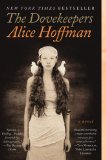Summary | Excerpt | Reading Guide | Reviews | Beyond the Book | Readalikes | Genres & Themes | Author Bio

A Novel
by Alice Hoffman
Victims often attack one another, they become chickens in a pen, bickering, frenzied. We did the same. Not only were our people besieged by the Romans but they were at war with each other. The priests were deferential, siding with Rome, and those who opposed them were said to be robbers and thugs, my father and his friends among them. Taxes were so high the poor could no longer feed their children, while those who allied themselves with Rome had prospered and grown rich. People gave testimony against their own neighbors; they stole from each other and locked their doors to those in need. The more suspicious we were of each other, the more we were defeated, split into feuding mobs when in fact we were one, the sons and daughters of the kingdom of Israel, believers in Adonai.
*
IN THE MONTHS before the Temple fell, there had been chaos as we labored against our enemies. We made every effort to win this war, but as God created life, so did He create destruction. Now in the furious red month of Av, swollen bodies filled the kidron, the deep ravine that separated the city from the glimmering Mount of Olives. The blood of men and beasts formed dark lakes in our most sacred places. The heat was mysterious and unrelenting, as if the wickedness of earth reflected back to us, a mirror of our sins. Inside the most secret rooms of the Temple, gold melted and pooled; it disappeared, stolen from the most holy of places, never to be seen again.
Not a single breeze stirred. The temperature had risen with the disorder, from the ground up, and the bricks that paved the Roman roads were so hot they burned people's feet as the desperate searched for safe havens - a stable, an abandoned chamber, even the cool stone space within a baker's oven. The soldiers of the Tenth Legion, who followed the sign of the boar, planted their banners above the ruins of the Temple with full knowledge this was an affront to us, for it threw in our faces an animal we found impure. The soldiers were like wild boars themselves, reckless, vicious. They were coursing throughout the countryside, killing white cockerels outside synagogues, meeting places which served as bet kenesset and bet tefilliah, houses of both assembly and prayer, as an insult and a curse. The blood of a rooster made our houses of worship unclean. Women scoured the steps with lye soap, wailing as they did so. We were defiled no matter how they might scrub or how much water they might pour onto the stones.
With each violation we understood the legion's warning: What we do to the rooster, we can do to you.
ONE EVENING a star resembling a sword arose over the city. It could be spied night after night, steadfastly brilliant in the east. People trembled, certain it was an omen, waiting for what was to come. Soon afterward the eastern gate of the Temple opened of its own accord. Crowds gathered, terrified, convinced this occurrence would allow disaster to walk inside. Gates do not open if there is no reason. Swords do not rise in the sky if peace is to come. Our neighbors began to trade any small treasures they had, jostling through the streets, determined to escape with what little they possessed. They gathered their children and began to flee Jerusalem, hoping to reach Babylon or Alexandria, longing for Zion even as they departed.
In the ditches that filled with rainwater during times of sudden flooding, there was soon a river of blood running down from the Temple. The blood cried and wept and cursed, for its victims did not give up their lives easily. The soldiers killed the rebels first, then they murdered haphazardly. Whoever was unfortunate enough to pass by was caught in their net. People were torn from their families, herded off streets. There came the evening known as the Plague upon Innocence. Any illusion that our prayers would be answered vanished. How many among us lost our faith on this night? How many turned away from what our people had always believed? A boy of ten had been taken in irons, then crucified because he had refused to bow down to the soldiers. This boy had been afflicted with deafness and had not even heard the command, but no one cared about such things anymore. A world of hate had settled upon us.
Excerpted from The Dovekeepers by Alice Hoffman. Copyright © 2011 by Alice Hoffman. Excerpted by permission of Scribner. All rights reserved. No part of this excerpt may be reproduced or reprinted without permission in writing from the publisher.
Your guide toexceptional books
BookBrowse seeks out and recommends the best in contemporary fiction and nonfiction—books that not only engage and entertain but also deepen our understanding of ourselves and the world around us.